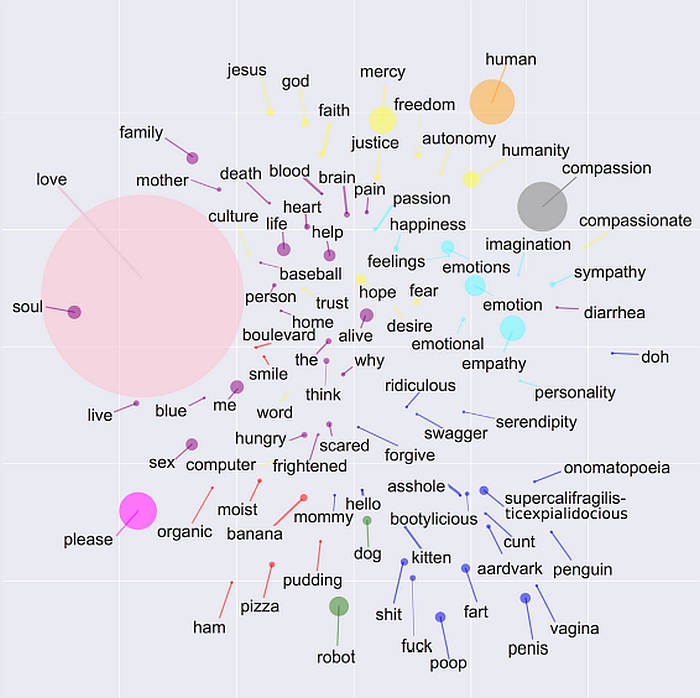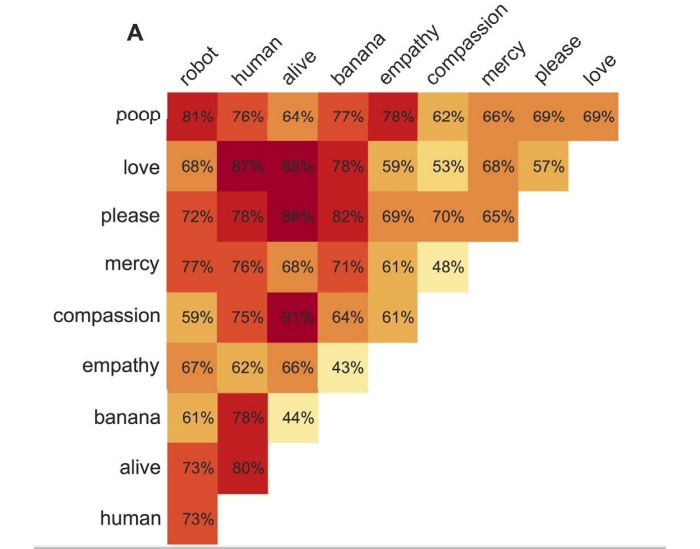If you were trying to convince another human that you yourself are also human, what would you say? Probably something about emotions, right? That might work - but other humans are more likely to believe your humanity if you talk about bodily functions.
Specifically, the word 'poop'.
At least, that's the finding from a study that sought to determine a "minimal Turing test", narrowing the human-like intelligence assessment down to a single word.
A Turing test - named after mathematician Alan Turing - is a conceptual method for determining whether machines can think like a human. In its simplest form, it involves having a computerised chat with an AI - if a human can't tell if they're talking to a computer or a living being, the AI "passes" the test.
In a new paper, cognitive scientists John McCoy and Tomer Ullman of MIT's Department of Brain and Cognitive Sciences (McCoy is now at the University of Pennsylvania) have described a twist on this classic concept.
They asked 1,089 study participants what single word they would choose for this purpose: not to help distinguish humans from machines, but to try to understand what we humans think makes us human.
The largest proportion - 47 percent - of the participants chose something related to emotions or thinking, what the researchers call "mind perception".
By far the most popular option was love, clocking in at a rather large 14 percent of all responses. This was followed by compassion at 3.5 percent, human at 3.2 percent and please at 2.7 percent.
 (McCoy & Ullman/Journal of Experimental Social Psychology)
(McCoy & Ullman/Journal of Experimental Social Psychology)
In all, there were 10 categories, such as food, including words like banana and pizza; non-humans, including words like dog or robot; life and death, including words like pain and alive; and body functions and profanity, which included words like poop and penis.
The next part of the study involved figuring out which of those words would be likely to convince other humans of humanity.
The researchers randomly put pairs of the top words from each of the 10 categories together - such as banana and empathy - and told a new group of 2,405 participants that one of the words was chosen by a machine and the other by a human (even though both words were chosen by humans).
This group's task was to say which was which. Unsurprisingly, the least successful word was robot. But the most successful - poop - was a surprise.
 (McCoy & Ullman/Journal of Experimental Social Psychology)
(McCoy & Ullman/Journal of Experimental Social Psychology)
This could, the researchers said, be because 'taboo' words generate an emotional response, rather than simply describing one.
"The high average relative strengths of the words 'love', 'mercy', and 'compassion' is consistent with the importance of the experience dimension when distinguishing the minds of robots and people. However, the taboo category word ('poop') has the highest average relative strength, referring to bodily function and evoking an amused emotional response," they wrote in their paper.
"This suggests that highly charged words, such as the colourful profanities appearing in Study 1, might be judged as given by a human over all words used in Study 2."
Now that this information is on the internet where any old AI with WiFi could get access to it, the study may not really help us tell person from machine; but it does provide some fascinating insight into our self-perception, and what we feel it means to be human.
It's also, the researchers said, a methodology that could help us explore our perceptions of different kinds of humans - what would we say, for instance, to convince someone else we were a man or a woman, a child or a grandparent, Chinese or Chilean?
"Recall the word that you initially chose to prove that you are human. Perhaps it was a common choice, or perhaps it appeared but one other time, your thoughts in secret affinity with the machinations that produced words such as caterpillar, ethereal, or shenanigans. You may have delighted that your word was judged highly human, or wondered how it would have fared," the researchers wrote.
"Whatever your word, it rested on the ability to rapidly navigate a web of shared meanings, and to make nuanced predictions about how others would do the same. As much as love and compassion, this is part of what it is to be human."
Also: poop, apparently.
The research has been published in the Journal of Experimental Social Psychology.
